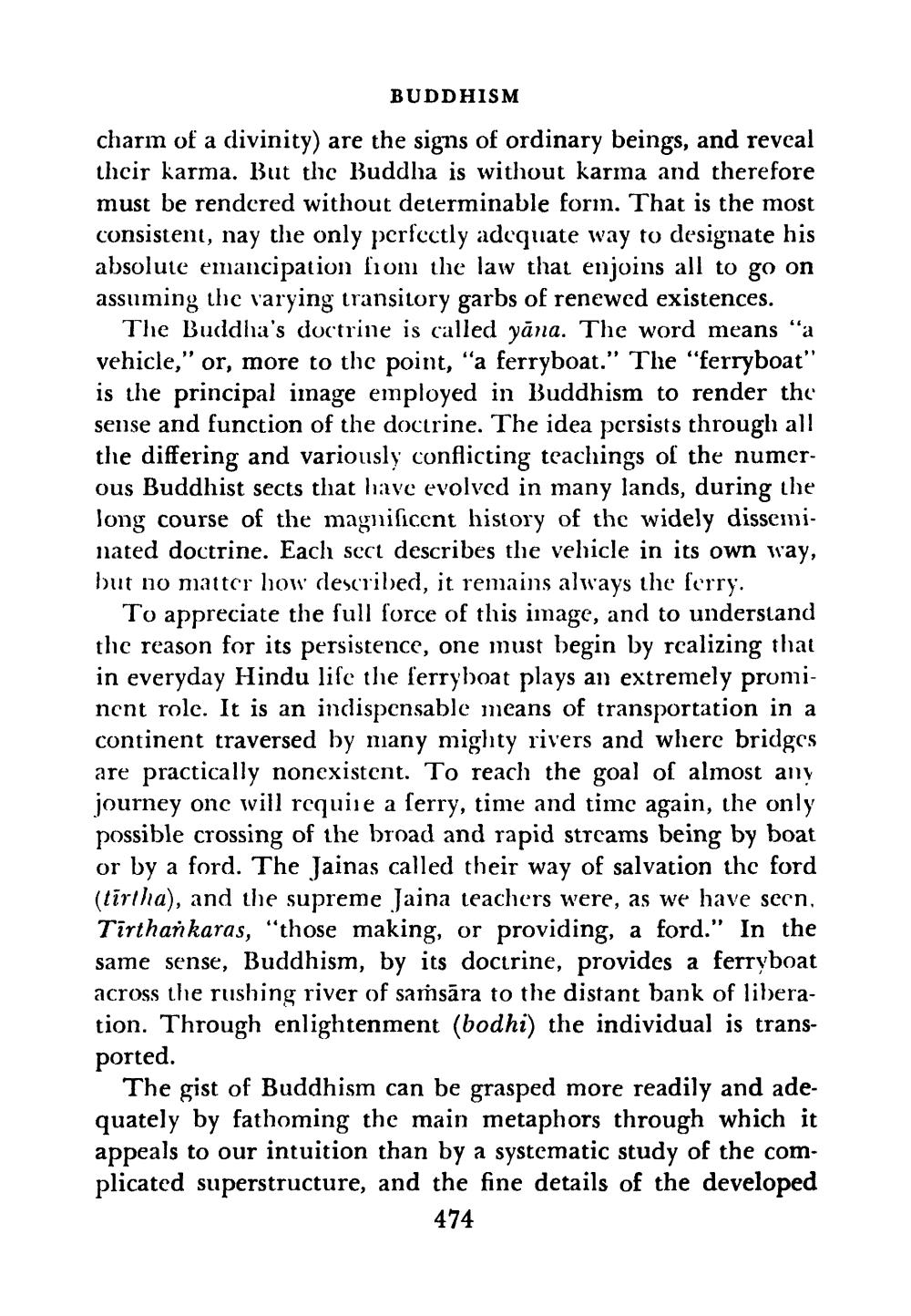________________
BUDDHISM
charm of a divinity) are the signs of ordinary beings, and reveal their karma. But the Buddha is without karma and therefore must be rendered without determinable form. That is the most consistent, nay the only perfectly adequate way to designate his absolute emancipation from the law that enjoins all to go on assuming the varying transitory garbs of renewed existences.
The Buddha's doctrine is called yāna. The word means "a vehicle," or, more to the point, "a ferryboat.” The “ferryboat" is the principal image employed in Buddhism to render the sense and function of the doctrine. The idea persists through all the differing and variously conflicting teachings of the numerous Buddhist sects that have evolved in many lands, during the long course of the magnisicent history of the widely disseminated doctrine. Each sect describes the vehicle in its own way, but no matter how described, it remains always the ferry.
To appreciate the full force of this image, and to understand the reason for its persistence, one must begin by realizing that in everyday Hindu lise the ferryboat plays an extremely prominent role. It is an indispensable means of transportation in a continent traversed by many mighty rivers and where bridges are practically nonexistcnt. To reach the goal of almost any journey one will require a serry, time and time again, the only possible crossing of ihe broad and rapid streams being by boat or by a ford. The Jainas called their way of salvation the ford (tiriha), and the supreme Jaina teachers were, as we have secn, Tirthankaras, "those making, or providing, a ford.” In the same sense, Buddhism, by its doctrine, provides a ferryboat across the rushing river of samsāra to the distant bank of liberation. Through enlightenment (bodhi) the individual is transported.
The gist of Buddhism can be grasped more readily and adequately by fathoming the main metaphors through which it appeals to our intuition than by a systematic study of the complicated superstructure, and the fine details of the developed
474




